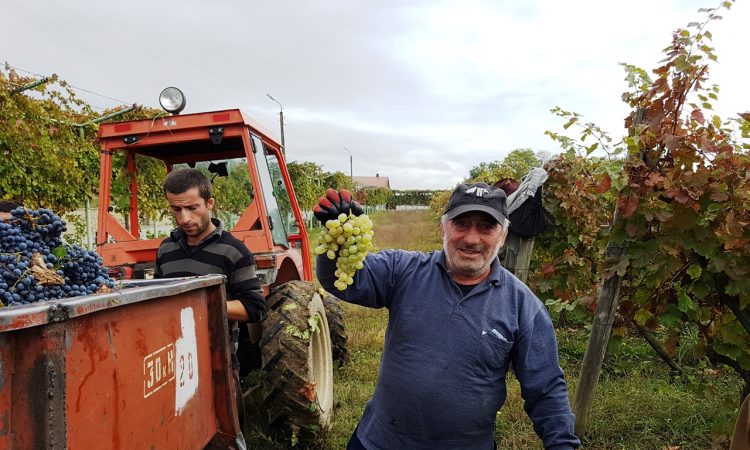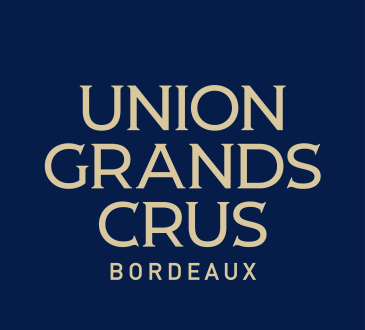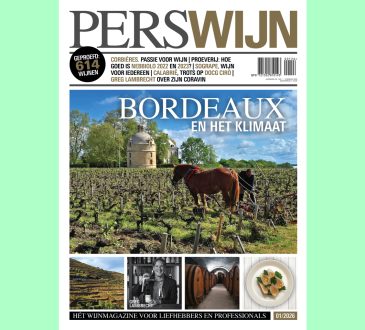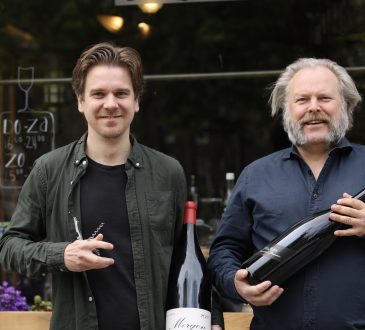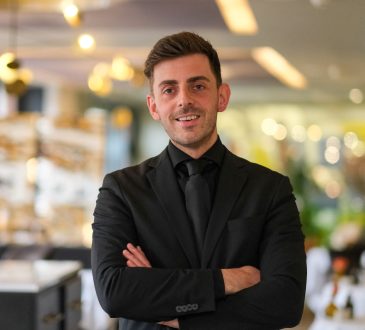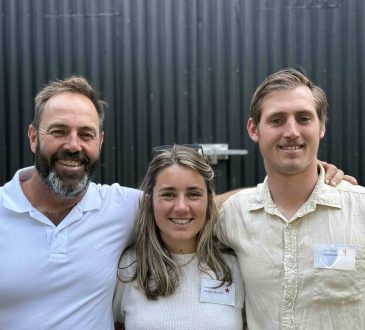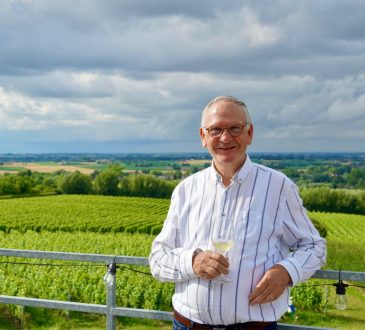Appeal by the International Wine Academy to Heads of State and Government attending the United Nations 80th Anniversary General Assembly in New York
Ladies and Gentlemen, Heads of State and Government,
On September 25th, at the 4ᵗʰ United Nations High-Level Meeting on the prevention and control of
noncommunicable diseases and the promotion of mental health and well-being, you will be faced with a
challenging brief: how can we prevent and control noncommunicable diseases without denying the foundations of our cultures, without erasing what makes our civilization thrive?
Wine is at the heart of this question. Too often, it is reduced to a molecule of alcohol. Too simplistically, it is compared to a drug. But too rarely do we think about what it embodies. The International Wine Academy, whose members come from 20 different countries, wishes to alert you against the danger of reducing wine to a mere health risk, thereby forgetting its cultural, social and human dimension. Here is what is at stake.
To denormalise wine would destroy a heritage – a legacy of humanity
Wine embodies eight millennia of human history: it is a catalyst for conviviality, joy and sharing; a connection to the land and its landscapes; a universal language linking people – from Georgia to Ancient Greece, from Oregon to Tuscany, from France to New Zealand. Unique yet global, it expresses mankind’s patience before time, humility before the earth, and the desire to celebrate together. Offering a glass of wine is a gesture that expresses peace, friendship, brotherhood, and the joy of being together.
Enjoying wine moderately is to defend the culture of taste and restraint, and perpetuate a bond that unites continents, people and generations. It is about appreciating rather than abusing, tasting rather than drinking. It is about approaching health through social and family ties, mental well-being and the joy of life – for the link between happiness and health is undeniable.
To denormalise wine would deny its benefits and close scientific debate prematurely
A recent NASEM report (National Academies of Sciences, Engineering, and Medicine, USA) concluded that
“compared to no alcohol consumption, moderate consumption is associated with lower all-cause mortality.” We do not claim to settle the scientific debate, but, like many experts, we regret the absence of a large-scale randomized trial, the only viable protocol to ground conclusions on certified evidence rather than insufficient observational data.
To denormalise wine is to choose prohibition over education and freedom
We are fully aware of the dangers of excess. We recognize the need to prevent addiction, protect the most vulnerable, and combat abuse. We embrace this responsibility, for it is through education that consumers learn to taste, compare and appreciate wine with moderation – becoming ambassadors of balance.
Through education, we believe we can both protect individual freedom to enjoy wine without abuse and promote responsibility and control. Wine thus expresses its truth through the transmission of knowledge, and know-how, and teaching moderation.
For these reasons, Ladies and Gentlemen, Heads of States and Governments, we call upon you to act in a balanced and nuanced manner: combat excesses but recognize the value of moderation; prevent risks but preserve mankind’s bond with the earth; protect public health but respect the richness of cultures and the strength of traditions. Preserving wine means defending a civilization, a way of life, a living universal heritage, a part of humanity that has been passed down from generation to generation for thousands of years.
On behalf of the International Wine Academy
Guillaume d’Angerville, President & Véronique Sanders, Chancellor
Lausanne, September 2025
www.academievin.org
Juan José Abó de Juan – Abadía Retuerta (Spain), Guillaume d’Angerville – Domaine Marquis d’Angerville (France), Angel Anocibar – Abadía Retuerta (Spain), Jane Anson – Writer (United Kingdom), Juancho Asenjo – Writer (Spain), Hans Astrom – Klein Constantia Estate (Sweden), Franky Baert – Collector (Belgium), Jesus Barquin – Equipo Navazos (Spain), Alexander van Beek – Château Giscours (Netherlands), Joshua Bergström – Bergstrom Wines (USA), Michel Bettane – Journalist (France), Etienne Bizot – Bollinger (France), Hubert Boidron – Maison Boidron (France), Wojciech Bonkowski – Critic (Poland), Bruno Eugène Borie – Château Ducru Beaucaillou (France), Claude Bourguignon – LAMS (France), Philippe Bourguignon – Writer (France), Willi Bründlmayer – Weingut Brundlmayer (Austria), Christopher Cannan – Clos Figueras (USA), Robert Gyula Cey-Bert – Writer (Hungary), Jean-André Charial – Oustau de Baumanière (France), Gérard Chave – Domaine Jean-Louis Chave (France), Jean Louis Chave – Domaine Jean-Louis Chave (France), Jean-Pierre Chevallier – Château de Villeneuve (France), Donatella Cinelli Colombini – Fattoria del Colle (Italy), Corinne Clavien Desfayes – Oenologist (Switzerland), Raoul Cruchon – Domaine Henri Cruchon (Switzerland), Frans de Cock – Collector (Belgium), Jean-Philippe Delmas – Château Haut Brion (France), Paul Draper – Ridge Vineyards (USA), Thomas Duroux – Château Palmer (France), Kurt Feiler – Weingut Feiler-Artinger (Austria), Mariano Fernandez Ammunategui – Producer (Chile), Pierre-Henry Gagey – Louis Jadot (France), Angelo Gaja – Vini Gaja (Italy), Alberto Graci – Graci (Italy), Claude Geoffray – Château Thivin (France), Theodore Georgopoulos – Professor (Greece), Salvatore Geraci – Azienda Agricola Palari (Italy), Evangelos Gerovassiliou – Ktima Gerovassiliou (Greece), Anthony Hanson – Lecturer (United Kingdom), Gaston Hochar – Château Musar (Lebanon), Emilienne Hutin – Domaine Les Hutins (Switzerland), Joyce Kékkö-Van Rennes – Wijnkasteel Genoels-Elderen (Belgium), Andreas Keller – Editor (Switzerland), Anthony Lacey – Mistral Wine (United Kingdom), Dominique Lafon – Domaine des Comtes Lafon (France), Alois Clemens Lageder – Vignobles Alois Lageder (Italy), Jean Baptiste Lecaillon – Louis Roederer (France), Jeannie Cho Lee MW – Journalist (Korea), Pierre-Marie Lledo – Neurobiologist (France), Maria José Lopez de Heredia – Bodega López de Heredia (Spain), Juan Carlos Lopez de Lacalle – Bodega Artadi (Spain), Reinhard Löwenstein – Domaine Heymann-Lowenstein (Germany), Jorge Lucki – Journalist (Brazil), Philippe de Lur Saluces – Château de Fargues (France), Elie Maamari – Château Ksara (Lebanon), Axel Marchal – Professor, University of Bordeaux (France), Franco Martinetti – F. Martinetti Viniculture (Italy), Ton Mata – Recaredo (Spain), Laszlo Meszaros – Domaine de Disznoko (Hungary), Etienne de Montille – Domaine de Montille (France), Eva Moosbrugger – Domaine Schloss Gobelsburg (Austria), Jasper Morris MW – Writer (United Kingdom), Fiona Morrison MW – Journalist (United Kingdom), Roberto de la Mota – Revancha & Mendel Wines (Argentina), Dorli Muhr – Weingut Dorli Muhr (Austria), John Olney – Ridge Vineyards (USA), Raymond Paccot – Domaine La Colombe (Switzerland), Alvaro Palacios – Alvaro Palacios (Spain), Filipa Pato – Filipa Pato & William Wouters (Portugal), Jean-Pierre Perrin – Château de Beaucastel (France), Dominique Piron – Domaine du Vieux Bourg (France), Bruno Prats – Agronomist (France), Pietro Ratti – Cantina Renato Ratti (Italy), Josep Roca i Fontané – Celler de Can Roca (Spain), Pierre-André Roduit – Domaine du Grand-Brûlé (Switzerland), Raoul Salama – Château de Balleure (France), John Salvi – Writer (United Kingdom), Véronique Sanders – Château Haut Bailly (France), Erik Sauter – Writer (Netherlands), Carl von Schubert – Weingut Maximin Grunhaus (Germany), Michael Schuster – Wine Consultant (United Kingdom), Marc-André Selosse – Professor (France), Jacques Seysses – Domaine Dujac (France), Michael Silacci – Opus One (USA), Peter Sisseck – Dominio de Pingus (Denmark), Diana Snowden Seysses – Domaine Dujac & Snowden Vineyards (USA), Felipe de Solminihac – Viña Terra Noble (Chile), Oliver Spanier – Battenfeld Spanier (Germany), Serena Sutcliffe MW – Sotheby’s (United Kingdom), Pierre Tari – Collector (Switzerland), Ivo Varbanov – Ivo Varbanov Wines (Bulgaria), Christine Vernay – Domaine Georges Vernay (France), Quim Vila Betriu – Vila Viniteca (Spain), José Vouillamoz – Geneticist (Switzerland), Yannis Voyatzis – Boutari Wineries (Greece), Maurizio Zanella – Ca’ del Bosco (Italy).
Contact : info@academievin.org
Founded in 1971, the International Wine Academy is a peer group and responsible forum for reflection, bringing together around one hundred members from some twenty different nationalities. Through its work, the International Wine Academy aims to contribute to the improvement of viticulture and winemaking practices, with a strong respect for nature and a constant pursuit of ever-higher quality standards.
The International Wine Academy conducts its reflections and debates in strict independence from governmental institutions, regulatory authorities, and private influences. Its members are mainly producers, scientists, sommeliers and communicators. Admission is by invitation, and all members share a common ethic: producing wines of place, rooted in their terroir, crafted with respect for local traditions and practices, with a commitment to quality and sustainability as the fruit of a long history and ancient traditions.
Climate change, biodiversity, regenerative viticulture, carbon capture, the evolution of phytosanitary treatments, consumer habits, as well as soil enrichment and preservation, are among the key topics regularly discussed within the International Wine Accademy.

